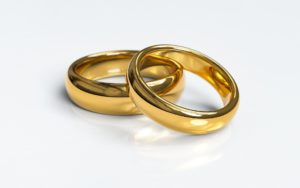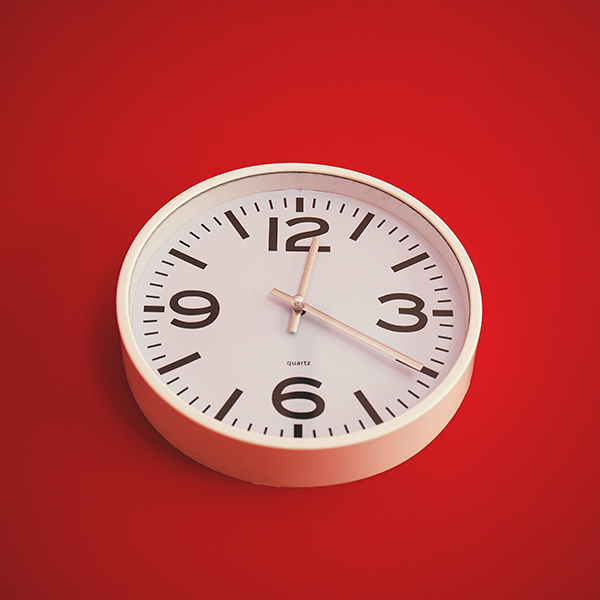In a few weeks’ time I will be getting married to my wonderful fiancée Lizzie. When we got engaged last year there was no way we could have predicted the spanner in the works that Coronavirus has been to our wedding plans. In many ways the last few months has been defined by uncertainty.
Uncertainty about when we would get married. Uncertainty about how we would get married. Uncertainty about who would even be there. Yet amidst this uncertainty, although we’ve had some tough moments, we have been held steady by being able to look forward to what we do know. We will celebrate our wedding day and begin married life together.
No matter what our wedding ends up looking like, the most important aspect of the day is that we will be making a lifelong commitment to one another before God, our family and friends (perhaps via Zoom for the latter two).
We will be making promises to love and serve one another in all circumstances, to give all that we have and are to one another, and to be loyal and faithful to each other above everyone else. In a profound sense we will go from being two individuals to one family, and that can only happen because of the exclusive commitment we will be making to one another.
Lizzie and I were very intentional in our relationship right from the start. I must admit our ‘forever conversation’ happened quite quickly. That is because we were both convinced that dating was not an end in itself, but rather a means to an end; that end being marriage, and that a wedding is really the start of the journey together in life, not just a big party or a capstone to a long-term relationship.
Yet many people in the UK today don’t see marriage and weddings in the same way as we do. A profound shift has taken place in the last 50 years that has changed the way we view relationships, and some lies have grabbed hold that cannot be easily shaken away.
As a society we seem to have lost confidence in marriage. It is no longer seen as the norm for couples that want to make a life together but just one of a number of options. Marriage rates have been falling gradually since the 1970s and if current trends remain, a child born today in the UK has more than a one in three chance of not living with both birth parents by the age of 15.[1]
This loss of confidence in marriage has not, however, happened equally across society. The reality we must face up to is that marriage is becoming a privilege for the middle and upper classes. Marriage Foundation research has shown that there is a growing Marriage Gap: 87 per cent of high earners (over £43,000) marry whereas only 24 per cent of low earners (under £16,000) marry.[2]
Given the profound benefits that marriage brings – including stability, security, family support – it is clear moving into the 3rd decade of the 21st century that marriage is now a social justice issue. I’m sure that our forebears would find that sentence profoundly peculiar.
Given the perception of continual ‘progress’ in our age, how can we have arrived at this point? What is it that created this injustice? What barriers are in place that marriage is somehow no longer accessible?
It is a strange notion that marriage might not be accessible, but accessibility is not merely about the ability to do something but rather the conditions and culture that surround it that make a choice attractive or even the norm.
There are many, many reasons why marriage is increasingly inaccessible. I would like to highlight two particular reasons, one cultural and the other financial.
Hollywood: preach what you practice!
Our entertainment industry that provides us with so many of the cultural stories that we consume each day, often without thinking, pays little respect to stable married families. The movies and TV shows we watch in modern Britain rarely spend much time shining a light on positive stable married families, choosing to focus more often on the rise of families that depart from the traditional nuclear family model.
Hollywood has played a principal role in amplifying cultural values that emphasise the individual fulfilment and self-actualisation that has underwritten the increase in family breakdown in the last 50 years.
Yet the irony is that the very people who have fuelled these cultural ideas that undermine marriage have in fact embraced marriage and stability in their own lives. Recent research from the Institute for Family Studies found that the very neighbourhood that stands at the centre of historic Hollywood, Whitley Heights found between the Hollywood sign and the theatre where the Oscars are held, has virtually no single parents amid the hundreds of families who make their home there. Indeed, it turns out that two-parent families dominate most of the best neighbourhoods in the hills and along the beaches of Southern California.[3]
What a change it might make if the stable married families that dominate this industry preached what they practiced!
Weddings: expenses and expectations
£30,355. That’s the average cost of a wedding according to bridebook.co.uk’s 2018 National Wedding Survey.[4] No wonder so many people see marriage as inaccessible if you have to save up for years in order to have the ‘perfect’ wedding.
Increasing expectations of what a wedding ‘should’ look like can sadly force people to ask ‘how could I ever get married?’ This is one area where it is clear that social media, and the comparison that it forces on us, has hampered us as a society.
Yet is clear that you don’t have to break the bank to get married, those of us considering marriage or getting married just need to look back to our grandparents’ generation. What defines a wedding is the commitment and promises that are made, not the cost of the table decorations or what vintage the wine is.
This is a challenge that needs to be taken up by individuals. Could you be the couple that demonstrates practically what it looks like to have a wonderful wedding day without starting marriage in £30,000 of debt and with 100 table decorations you don’t really know what to do with?
But this is also a challenge that churches need to hear. If you are lamenting how few people get married in your church, ask  yourself what role you could play in making it an attractive option. One pioneering vicar in Cheshire has created an all-inclusive wedding package for £1,000. All the couples need to do is to bring their own clothes![5]
yourself what role you could play in making it an attractive option. One pioneering vicar in Cheshire has created an all-inclusive wedding package for £1,000. All the couples need to do is to bring their own clothes![5]
Coronavirus has forced Lizzie and me to come back to the things we think are most important for our wedding day. Our commitment to getting married has meant we don’t have the option of doing the wedding we had originally planned, but whatever the specifics of the day end up like I know that it will be a joyful and happy celebration of our love for one another and the beginning of a new life together.
[1] https://marriagefoundation.org.uk/research/family-stability-improves-as-divorce-rates-fall/
[2] https://marriagefoundation.org.uk/wp-content/uploads/2019/09/MF-paper-The-Marriage-Gap-Rich-and-Poor.pdf
[3] https://ifstudies.org/blog/happily-ever-after-even-in-hollywood
[4] https://www.independent.co.uk/life-style/love-sex/wedding-cost-uk-average-how-much-marriage-ceremony-bridebook-a8460451.html
[5] https://www.churchtimes.co.uk/articles/2019/4-january/news/uk/vicar-offers-church-wedding-and-reception-package-for-all-inclusive-price-of-1000


